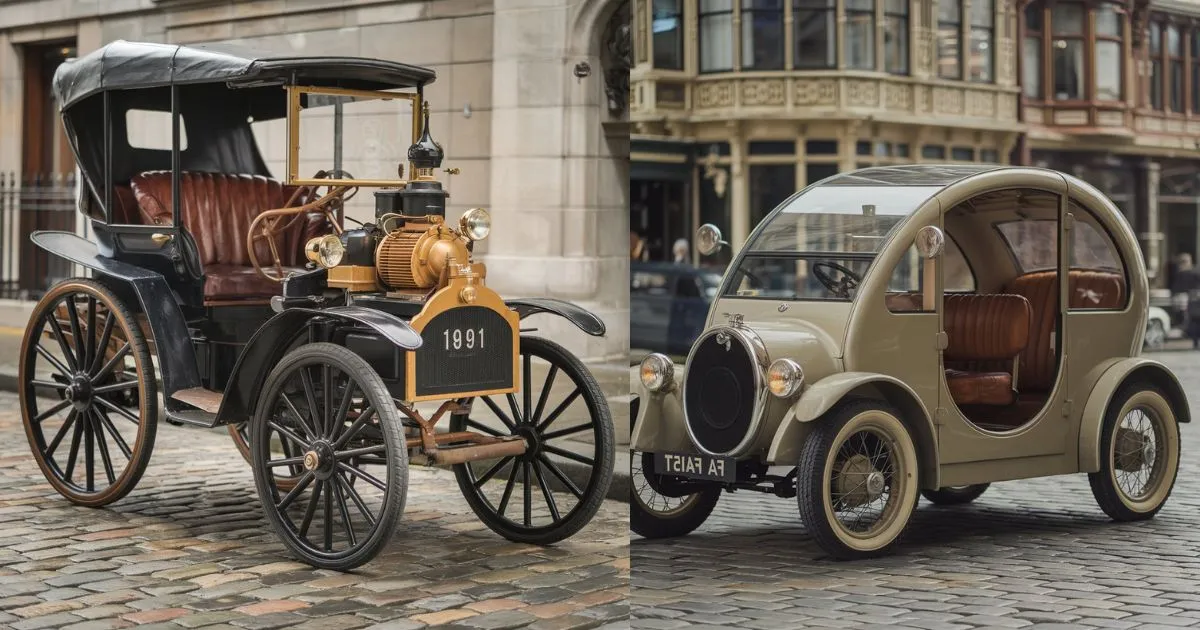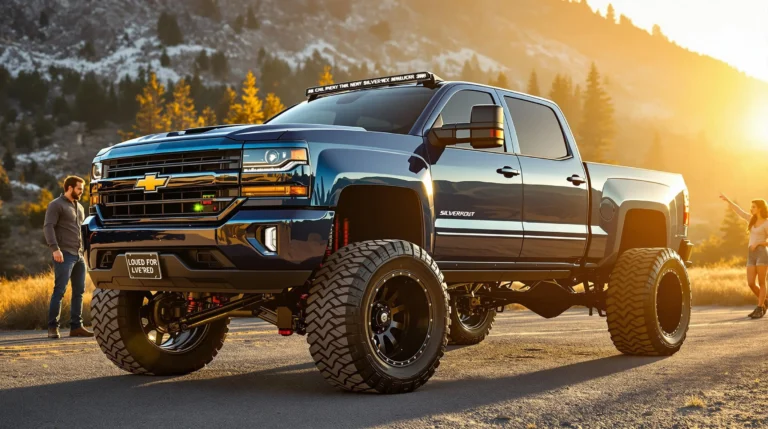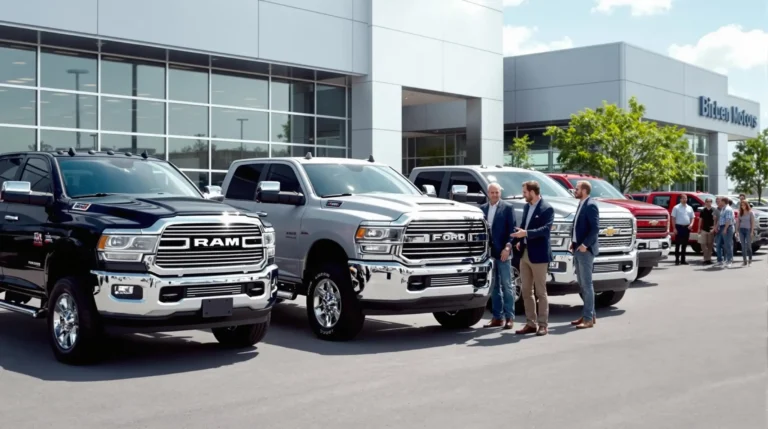The First Electric Car: Surprising Origins Revealed
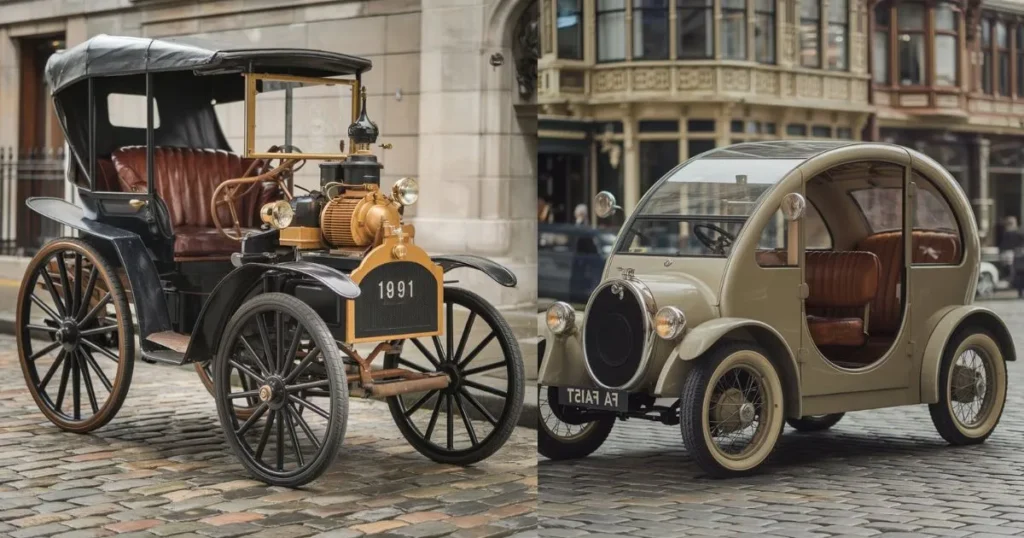
When we think of electric cars, modern innovations like Tesla often come to mind. However, the history of the first electric car dates back much further than most people realize. Understanding the origins of the first electric car not only highlights the ingenuity of early inventors but also sheds light on the evolution of sustainable transportation.
The First Electric Car: The Dawn of Electric Vehicles in the 19th Century
In the early 1800s, inventors were experimenting with various forms of propulsion to revolutionize transportation. So, when was the first electric car invented? Around 1832, Scottish inventor Robert Anderson developed what is considered the earliest electric car. His creation was a crude electric carriage powered by non-rechargeable batteries—a significant milestone in the history of electric cars. Learn more about early electric vehicle development at the Smithsonian’s comprehensive history of electric cars.
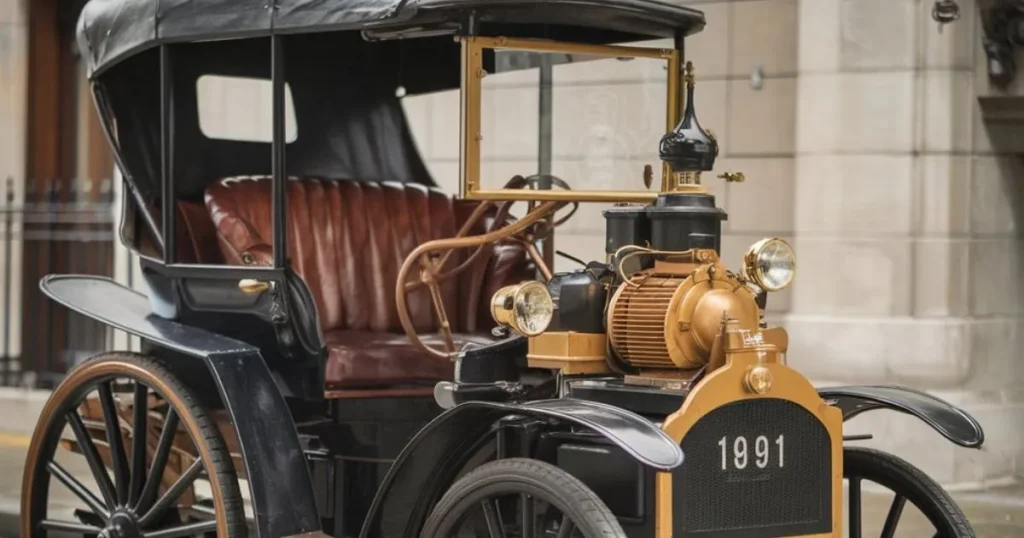
Despite its limitations, Anderson’s electric carriage showcased the potential of electric propulsion. The lack of rechargeable batteries meant the vehicle wasn’t practical for widespread use. Nevertheless, it set the stage for future innovators to improve upon his design.
William Morrison’s Electric Car: America’s First
Fast forward to 1891, and we see the emergence of the first electric car produced in the United States. Built by chemist William Morrison of Des Moines, Iowa, this vehicle could carry up to six passengers and reach a top speed of 14 mph. Morrison’s car utilized rechargeable batteries, making it more practical than its predecessors.
Morrison’s invention wasn’t just a novelty; it was a functional vehicle that demonstrated the viability of electric cars. His work spurred interest among other inventors and laid the groundwork for electric vehicles in the U.S. To learn more about vehicle innovations during this era, check out our article on the top 10 worst cars to buy. For a detailed timeline of electric vehicle development, visit the U.S. Department of Energy’s History of Electric Vehicles.
The Rise and Fall of Early Electric Cars
By the early 1900s, electric cars were gaining popularity, accounting for about one-third of all vehicles on the road. Urban residents favored them for their quiet operation and ease of use. Electric cars didn’t require manual cranking to start, a significant advantage over gasoline-powered vehicles with their cumbersome gasoline engines.
However, several factors led to the decline of early electric cars:
- Limited Range: Electric vehicles had a restricted driving range, usually between 30 to 40 miles per charge.
- Charging Infrastructure: There was a lack of widespread charging stations, making long-distance travel impractical.
- Mass Production of Gasoline Cars: Henry Ford‘s introduction of the assembly line made gasoline cars cheaper and more accessible.
- Discoveries of Oil Reserves: The discovery of large oil fields reduced fuel prices, making gasoline cars more economical.
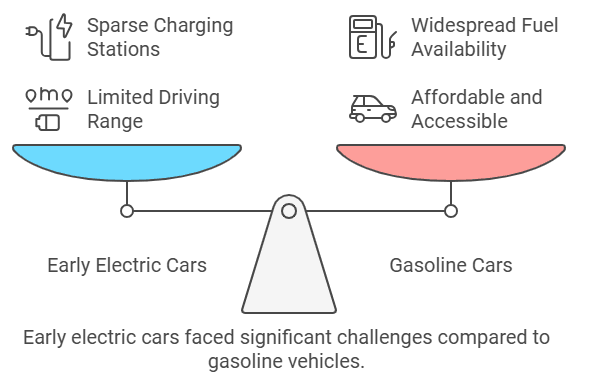
By the 1920s, electric cars had largely disappeared from the market. For insights on car evolution and maintenance, explore our guide on ultimate vehicle maintenance log templates.
The First Hybrid Car Invented: Bridging the Gap
Amid the competition between electric and gasoline vehicles, inventors sought a middle ground. In 1901, Ferdinand Porsche developed the Lohner-Porsche Mixte Hybrid, recognized as the first hybrid car invented. This vehicle combined a gasoline engine with electric motors in the wheel hubs—a revolutionary concept at the time.
The first hybrid vehicle addressed some limitations of fully electric cars by extending range and improving performance. However, due to high costs and complex technology, hybrids didn’t catch on immediately. It wasn’t until the late 20th century that hybrids like the Toyota Prius gained popularity, emphasizing fuel efficiency and reduced emissions.
The Rebirth of Electric Vehicles
The late 20th and early 21st centuries saw a resurgence in electric vehicles, driven by advancements in battery technology and growing environmental concerns. So, when was the first electric car produced in the modern era? In 1996, General Motors introduced the EV1, marking a significant milestone.
Key factors contributing to the electric vehicle revival include:
- Improved Batteries: Introduction of the lithium-ion battery increased energy storage and reduced weight.
- Environmental Awareness: Concerns over pollution led to a push for cleaner transportation options.
- Technological Advancements: Innovations in electronics and materials made electric cars more viable.
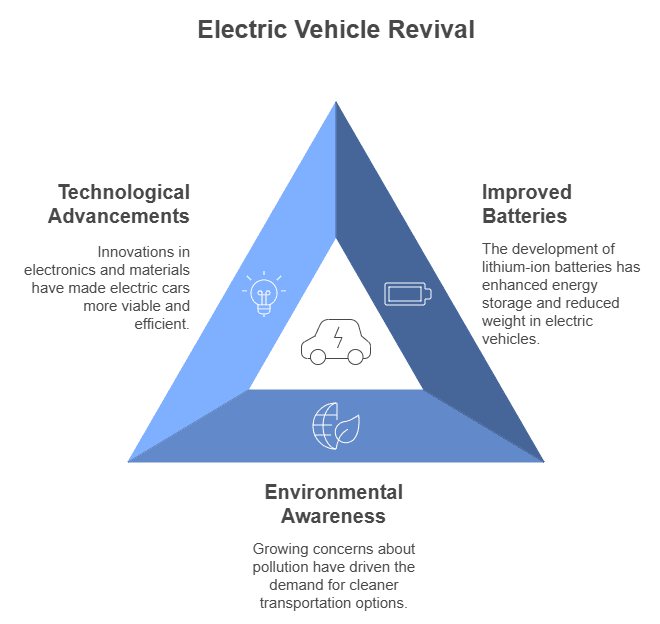
Modern electric cars, like the Nissan Leaf, offer impressive range and performance. They symbolize how far we’ve come since the days of old electric cars like Anderson’s carriage. For those interested in the latest automotive technologies, our comparison of Ford Bronco Sport vs. Jeep Wrangler provides valuable insights. Find out more about environmental benefits of electric vehicles on the EPA’s Green Vehicle Guide.
Electric Cars Before Tesla: Pioneers of the Industry
Before Tesla became synonymous with electric vehicles, several other manufacturers and models paved the way:
- Detroit Electric (1907-1939): Produced thousands of electric cars, popular among women and professionals.
- Baker Electric (1899-1915): Known for reliability and luxury features.
- EV1 by General Motors: Although short-lived, it reignited interest in electric cars during the 1990s.
These companies faced challenges due to competition with gasoline vehicles and limited technology. Nevertheless, their contributions are crucial chapters in the electric automobiles history.
The Impact of Thomas Edison and Henry Ford
Influential figures like Thomas Edison and Henry Ford played roles in the development of electric vehicles. Edison worked on improving rechargeable batteries, aiming to create a more efficient battery pack for electric cars. Ford, known for revolutionizing the gasoline-powered automobile industry, collaborated with Edison to explore electric car possibilities.
Their efforts highlighted the potential of combining battery power with mass production techniques. Although their electric car project didn’t materialize commercially, it set the stage for future endeavors. For more on driving advancements, visit our page on driving tips.
Challenges Facing Modern Electric Vehicles
Despite significant advancements, modern electric vehicles face hurdles:
- Charging Infrastructure: Expansion of charging stations is essential for widespread adoption.
- Battery Costs: High costs of battery technology affect vehicle pricing.
- Range Anxiety: Concerns about limited driving range persist among consumers.
- Environmental Impact: Production and disposal of batteries raise ecological questions.
Efforts are underway to address these issues through improved technology and government initiatives. Understanding these challenges helps consumers make informed decisions when considering an electric car. If you’re evaluating your options, our list of most reliable European cars might be helpful.
The Future of Electric and Hybrid Vehicles
The future of transportation is leaning heavily toward electrification. With advancements in plug-in hybrids, battery power, and renewable energy sources, electric vehicles are becoming more practical and affordable. Governments worldwide are setting goals to phase out gasoline-powered cars in favor of electric ones.
Emerging trends include:
- Improved Battery Life: Research into new materials aims to extend battery lifespan and reduce charging times.
- Autonomous Driving: Integration of electric vehicles with self-driving technology.
- Sustainability: Focus on eco-friendly production methods and recycling.
For students and young drivers interested in electric vehicles, exploring student car rental options may provide accessible ways to experience these technologies firsthand.
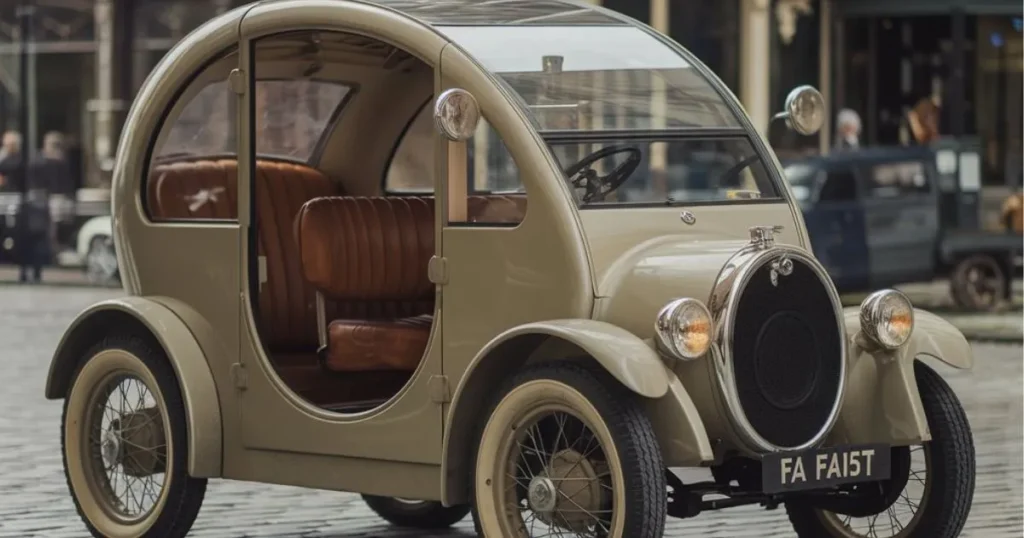
Conclusion
From Robert Anderson’s electric carriage in the 1830s to today’s sophisticated electric vehicles, the journey has been remarkable. The first electric car wasn’t just a singular invention but the beginning of an ongoing evolution in transportation. By appreciating the past, we can better understand and contribute to the future of mobility.
As electric vehicles continue to advance, staying informed is crucial. Whether it’s understanding the intricacies of electric cars or learning how to wrap a car for beginners to protect your investment, knowledge is power. Consider exploring our guide on eco-friendly car wash methods to maintain your vehicle sustainably.
Ready to be part of the electric revolution? Share this article with friends and join the conversation about the future of transportation!
Let me know if you would like any adjustments or further refinements to this article!
There are no reviews yet. Be the first one to write one.

